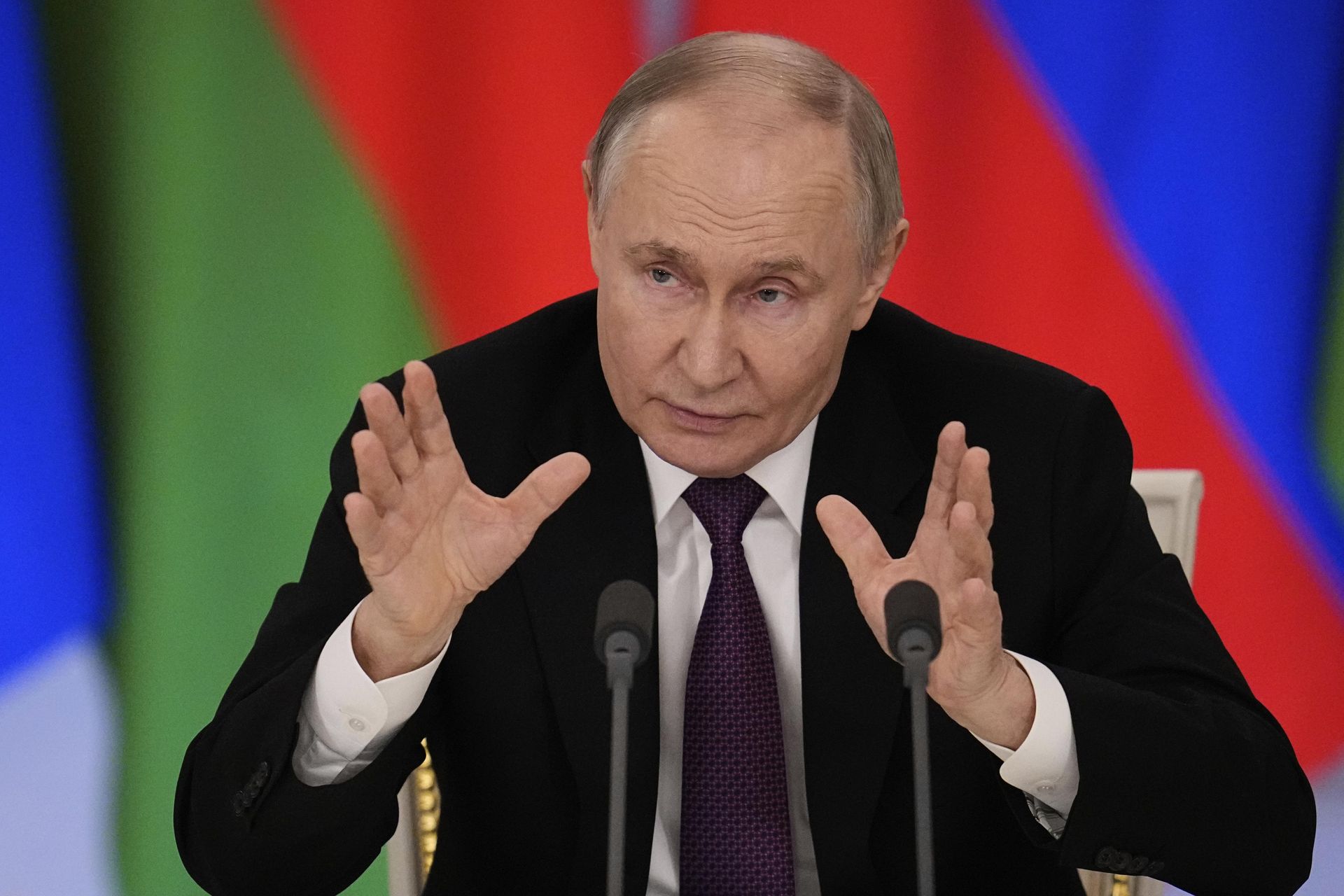“Russian syndrome” is the title of another book by Jan Engelgard (a fresh “The Curse of General Denikin” and a collection of texts “The Virus of Russophobia”) devoted to Polish relations to Russia was published. The work in the historical layer tells the past of the diplomatic game that Joseph Piłsudski led in 1919 with the leader of the “white” Russians Anton Denikin.
At this level it is primarily an example of a reliable historical work. Through papers from the era, testimonies and memories of actors of those events, the author guides us through the scenes of political gameplay. These passages are read as a good detective novel, in which successively emerging facts consequence in the expansion of an almost criminal mystery. The second plane is simply a somewhat more delicate effort to answer the question about the motives of the main protagonist of the full action, which was Józef Piłsudski and about the effects, including the far-reaching ones, his choices and actions.
The author starts by showing the little-known facts of Anton Denikin's life in Poland, reminding him that his parent was Polish, he himself knew Polish culture and language, and although he identified with Russia, he was very kind to our country, which besides active his Slavophile beliefs. The origin of quite a few information on this subject was Stanisław Karpiński's second volume of memoirs, who attended the same school in Włocławek with Denikin, and even shared a area with him in a state belonging to the Polish Russian mother.
The next chapter shows the attitude of white Russia to the revival of the Polish state and reminds that Russia was the first of the participants of the large War to draw Poland's regaining independency from political non-existence and re-enter the game or even a kind of bidding of powers. It's the celebrated Grand Prince Nicholas Manifesto of August 1914. Further Russian and German declarations went on and on and at the time of the action described by the book the case of an independent Polish state was already a recognised Treaty of Versailles. Neither did Anton Denikin nor any of the centres of power that existed in Russia at the time, although they were not parties to the Versailles Treaty. While the treaty was being signed under Paris, Russia had been under for almost 2 years a bloody civilian war, and the forces commanded first by Kołczak and then by Denikin occupied the area of small and fresh Russia. Denikin described the dramatic past of the fighting there in his late published book "White Army".
On the Polish side, Józef Piłsudski exercised complete control over military and diplomatic activities. In this context, an analysis of the kind in which the later marshal practiced abroad policy on behalf of the emerging Republic is highly interesting. No 1 but himself (and this is not entirely certain) knew its real goals, individual diplomats or military were treated like pawns on chessboards, and the actual control of their activity was exercised by the trusted chiefs of the second line. All the testimonies cited by John Engelgard indicate that the decision not to aid Denikin was determined from the very beginning. This choice was determined first by the biography of the militant against the "tsarist oppression", and consequently by the kind of brotherhood of weapons with Bolsheviks, and secondly by Piłsudski's plans to reconstruct the Jagielloan thought along with illusions towards Petlura and the Ukrainian issue. The first 1 proved to be fatal in assessing the real nature and possible threat of communism to Poland and the world, (this aspect of the motives leading Piłsudski pointed out in the book Józef Mackiewicz, whose position towards Russia and the case of Denikin the author devoted a separate chapter), the second 1 made it impossible at the outset to enter into a peace or to permanently standardize relations with the Russians, for which the issue of Ukraine was as much beyond discussion today.
As Jędrzej Giertych rightly wrote in the extended annex of the letter to the London “News” of 1948 – it is not known how the destiny of civilian war and Bolshevikism would have unfolded if the Polish army had done a comparatively limited operation that Denikin sought. However, there is no uncertainty that a tiny effort from the Polish side would consequence in the continuation of the fighting in Russia and its further weakening. According to Giertych, assuming even a cynical game of maximum weakening of Russia, logically speaking, the weaker side, Denikin, had to be helped.

Everything points to the fact that the Ukrainian issue was the main obstacle to specified a choice, and it was by playing this card that Piłsudski wanted to definitely weaken Russia. Unfortunately, the importance of Ukraine was besides realized by Russians, who assessed on the 1 hand more clearly the state-friendly capabilities of Petlura, whom they considered to be the leader of a band of bandits, and on the another hand the danger of Ukrainian nationalism and its possible support in Germany. It is highly moving in this context that Jan Engelgard quoted a summary of penetrating assessments and even fulfilled predictions of Denikin, in which he predicted the German-Soviet alliance on the corpse of Poland. In the short term, Piłsudski successfully deceived Denikin and equally effectively hid from the Polish political class and the public the fact of negotiations with Bolsheviks, which he assured rather clearly that he would not usage the withdrawal of forces from the Polish front for decisive gameplay with "whites". 1 might even hazard saying that the warden besides brought to the field known from the diplomatic maesterry of the English with Halford Mackinder inclusive. Only that this cunning turned out to be disastrous for Poland in the position of first months and then respective years. In 1919 we made not only an act of betrayal towards civilization, but besides a political mistake.
Interestingly, after Denikin was broken up by the Bolsheviks Piłsudski besides made peace with the fresh – old neighbour. Instead, he went into a Ukrainian brawl that ended in the arrival of Bolsheviks at Warsaw, tens of thousands of victims and a miracle, to which according to the popular story the genius of the marshal and the aid of the parent of God folded.
Other, more long-term effects of Piłsudski's policy were pointed out by Marian Zduchowski. In the passage of his writings quoted in the annex, he described them with the following words: "I do not uncertainty that under the regulation of Denikin or Wrangl, whether the fresh tsar the destiny of the Polish people in these lands (it is simply a part of the Polish endings given to the USSR by the Treaty of Risque – O.S.) would be difficult, but in any case bearable and our relations with Poles subject to the Russian state would be possible, erstwhile present (1936 – O.S.) despite the pacts on non-aggression, despite the polite bows and guarantees of friendship, we must look helplessly at how Catholicism and Polishity are absolutely and cruelly dull and the minute is close erstwhile neither Catholics nor Poles are there." And he wrote this without knowing the magnitude of the Polish run from 1937 before the exports, Katyń and a full series of misfortunes which, together with communism, first fell on Russia, but then on Poland.
Both the survey of facts and the investigation of motives is within the framework of classical historiography, but Jan Engelgard's book besides has a 3rd component and in my individual feeling it makes it most crucial for Poland and Poles here and now. This additional value of the work is to show on the basis of papers the attitude towards Denikin, or more broadly to Russia, the general Polish political class and public opinion. In order to show the atmosphere that prevailed among Polish politicians, the author reached for the stenograms of the 1919 session of the Sejm.
A full series of statements of the most celebrated Polish politicians specified as Maciej Rataj or Ignacy Daszyński show that, as present in crucial matters, “we spoke with 1 voice”. And just as today, just as then, this fine expression meant giving in to collective excitement and psychomoral blackmail, which did not let to break out of the mindless and full of exaltation of the choir. Reading these passages of the seismic speeches we have the impression that despite the passing of more than 100 years and tragic experiences nothing has changed in Polish heads, and many of the quoted statements could come out of the mouth of modern rusophobes bidding on the Village on politically correct declarations of hatred and contempt to the neighboring power.
Their reading awakens a bitter smile, and through the astonishing repetition of roles played by subsequent generations of political actors, resembles Italian Commmedia dell’arte. The goal was to shout pompous anti-Russian slogans from the left. However, equally pathetic is the striking deficiency of civilian courage, which besides lacked those who, as in the case of nationalists, had a different, politically-based opinion. They were afraid to introduce him and admit to reasonable actions specified as conducting talks with Russians of different options in Paris. The facts were denied, rivals were reported not to be anti-Russian enough. No one, literally, dared to publically present and defend a realistic, factually sound description of reality.
Another aspect of the same problem is the treatment of the substance of secret negotiations, and de facto a secret truce or even a kind of alliance with the Bolsheviks, erstwhile the full substance first went into past and yet came to light. First, in consequence to the parliamentary interpellation, the Russian accounts which appeared in 1925 after the death of Julian Marchlewski were not answered for a long time, then denied, respective years later, and erstwhile the authoritative confession to the negotiations in Mikaszewiczy took place by General Tadeusz Kutręba in 1937, it was considered that there were another matters on the head, although the media at the time did not want to print the Denikin position. As the author mentioned in an interview with Mateusz Piskorski on the channel Against censorship, while the period of the Polish People's Republic for understandable reasons for an alliance with the Bolsheviks could not attack anyone, the 3rd Polish Republic, based on its identity both on superficial anti-communism and on the cult of sanitation and Piłsudski, must again ignore or diminish the fact of cooperation of the second with the Bolsheviks.
It could turn out that before the legend of Piłsudski, like Lech Wałęsa, saved Poland, Europe and even the planet from Bolshevikism, he first saved this Bolshevikism from the hated Russia. In this sense, Engelgard's book strikes the very heart of the falsified historical identity of the alleged post-solidarity camp. This is besides why it is crucial and as specified it will be silenced in Poland or the destiny of Józef Mackiewicz's work, who in exile was the first and only to lead to a debate on this subject. The individual of Józef Mackiewicz is simply a separate issue in the context of the relations between Russia and Poland. The large value of the book is simply a reminder by the author of his character and work. While the anti-communism of Józef Mackiewicz was taken by part of the establishment of the 3rd Republic of Poland as banners, his friendly attitude to Tsarist Russia and to the Russians as people is either overlooked or treated as an embarrassing aberration, while for Józef Mackiewicz it was 1 of the pillars of his profoundly rooted in the values of the counter-revolutionary option of civilization.
Another reflection that comes into being during reading is the convergence of many features of Polish character that we observe on a regular basis, with what we present to the planet in our abroad policy. In the account of number Michał Kossakowski, who participated in negotiations with the Bolsheviks, Piłsudski presents himself as a megalomaniac declaring his contempt and hatred for the neighboring country and nation. Compared to Denikin, he appears to be a cunning player and swindler with no wider horizons, in which he marginally deviated from Carl Gustaf Mannerheim, who acted in akin realities and times.
Joseph Piłsudski described number Kossakowski, his attitude to Russia in 1919: “Both Bolsheviks and Denikin are 1 thing to say; We're power and you're dead. In another words, the soldier's language; choke, fight, I don't care if Poland's interests are not caught. And if you catch them somewhere, I'll beat them. If I don't hit you anywhere and ever, it's not due to the fact that you don't want to, but due to the fact that I don't. I despise you, I despise you.” Krzysztof Masłoń reviewing the aforementioned “White Army” in 2024 Denikina commented on this in the weekly He says, “Anything to say, we had leaders from a real event.”
Stanislaw Ignacy Witkiewicz, or Witkacy, chose to service in the Tsar army with premeditation in 1914 alternatively of in legions created by “Ziuk’s uncle”. A fewer years later, reasoning about the weaknesses of the Polish soul, he wrote: “The essence of the inferiority complex (disabled nodes) is simply a certain subconscious discontent with its position or position in the planet and the relation of the environment, which seems to be besides indifferent or negative towards the expected values and actions of the individual. (...) there are 2 ways of exiting the fateful position created by the knot of handicap, unless there is simply a complete balance between desires and reality, a dream and its fulfillment, a balance of compromise and settlement, a average half-satisfaction separated by the existence and saturation of its own personality, which, however, represents a greater part of the human being, a vegetative pulp of the community in which another alien beings seem to grow up individuals, feelings and thoughts; 2 are expensive: 1 road – reality – leads through real effort to justify, even in torment, the existence of a given creature in this land and in the planet and allows it to leave behind itself as a trace of its existence, valuable to him and to others, indirectly or directly, the creations; the another road, the way of untruthful contortion of the imaginary greatness, which at any time even others can be obliterated, leads through a land of ugly and tiny fiction to an infamous end, which could be compared to the empty, superlated balloon."
I get the impression that Witkacy's analysis is much better suited to Piłsudski's statements than Masłonia's delight. And although Witkacy tried to represent his fellow countrymen all day, his words painfully match Polish abroad policy, both 100 years ago and now.
It should be added that John Engelgard's book is carefully published; large print, bibliography, index names and very interesting annex further contribute to the fact that reading is not only an intellectual adventure, but besides a reading pleasure.
Olaf Swolkień
Jan Engelgard, “Russian syndrome. The case of Gen. Anton Denikin from a historical perspective”, Capital and Publishing home Miśmy Polska, Warszawa 2024, p. 456
Think Poland, No. 51-52 (15-29.12.2024)














